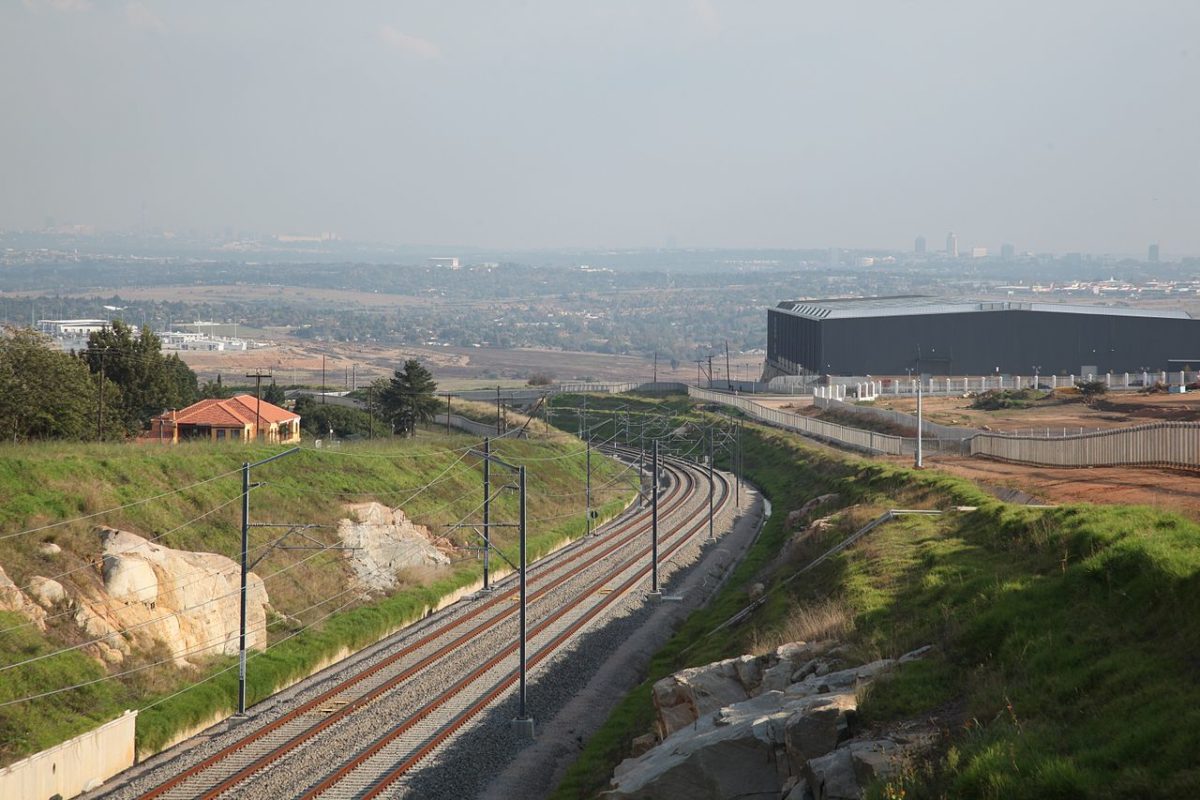The Development Bank of South Africa (DBSA) is seeking proposals for the development of an implementation strategy to deploy photovoltaic power solutions for the Gautrain system – an 80km rail system in Gauteng linking Johannesburg, Pretoria, Ekurhuleni, and the O.R. Tambo International Airport.
The PV facilities are set to provide power to the system's traction, stations, and depots. The proposed projects should have an initial capacity of 3 MW and could also be linked to some storage capacity.
The rail network comprises a 25kV AC electrified and signaled standard gauge track infrastructure, of which 15.3km is situated underground, as well as 10 stations and one maintenance depot.
Interested consultants have until Mar. 28 to submit their bids.
With specially designed power electronics, PV can be directly connected to electrified railways to supply one-tenth of the energy needed to power trains, without connecting to the grid.
Popular content
In related solar train news, the Swiss South Eastern Railway AG (SOB) commissioned a feasibility study from Swiss CMT AG a few years ago, with the aim of reducing its energy requirements and operating costs. It found that solar PV is “well-suited” for installation on the roofs of train stations, halls, and the soundproofed walls along railway lines.
Another recent study by Indian NGO Climate Trends and UK green-tech start-up Riding Sunbeams suggested self-generated solar power would be an optimal way of helping Indian Railways meet its 2030 net-zero target, given the rapid cut in carbon emissions and cost advantages it would offer.
In 2019, UK-based climate change charity 10:10 developed a demonstrator solar array in partnership with Community Energy South and national rail infrastructure operator Network Rail. According to its developers, a solar plant can theoretically be connected to any traction substation and supply from five to 10 km of the track in either direction.
This content is protected by copyright and may not be reused. If you want to cooperate with us and would like to reuse some of our content, please contact: editors@pv-magazine.com.



4 comments
By submitting this form you agree to pv magazine using your data for the purposes of publishing your comment.
Your personal data will only be disclosed or otherwise transmitted to third parties for the purposes of spam filtering or if this is necessary for technical maintenance of the website. Any other transfer to third parties will not take place unless this is justified on the basis of applicable data protection regulations or if pv magazine is legally obliged to do so.
You may revoke this consent at any time with effect for the future, in which case your personal data will be deleted immediately. Otherwise, your data will be deleted if pv magazine has processed your request or the purpose of data storage is fulfilled.
Further information on data privacy can be found in our Data Protection Policy.